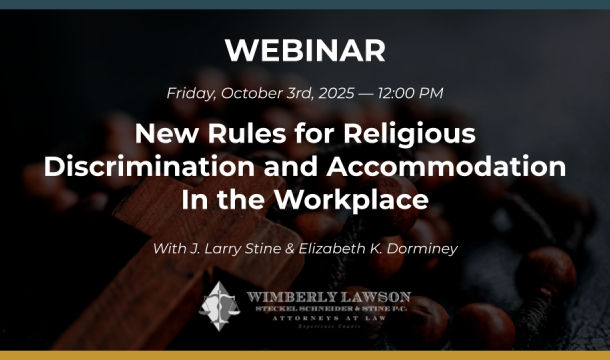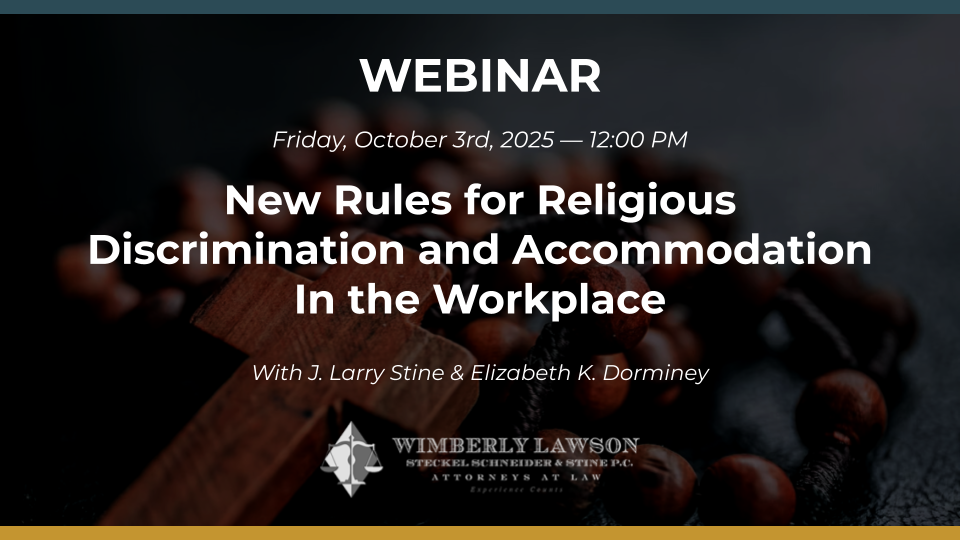The Role of Salary History in Pay Discrimination
A recent decision form the Eleventh Circuit of Appeals shows us that an employer cannot rely on salary history as a defense to a claim that it paid a female employee consistently less money than a male predecessor in the same position. (Bowen v. Manheim Remarketing, Inc., 11th Cir., No. 16-17237 (2/21/18)).
Manheim hired Qunesha Bowen as an automobile detailer, and three years later, the assistant general manager promoted her to arbitration manager. Bowen replaced a male arbitration manager. Manheim paid that male predecessor $46,350 during his first year as arbitration manager, but the assistant general manager and general manager set Bowen's starting salary at $32,000. Bowen's salary did not reach $46,350 until her sixth year as arbitration manager.
Bowen offered documents and testimony showing that, although she was an effective arbitration manager, her salary for a few years was below the minimum salary for arbitration managers and it was consistently well below the midpoint salary for arbitration managers. In response, Manheim asserted that factors other than sex—prior salary and prior experience—justified the pay disparity between Bowen and her male predecessor. The predecessor worked for Manheim for six years before his promotion to arbitration manager, he had prior managerial and mechanical experience, and he earned $46,350 per year at Manheim before the promotion. In contrast, Bowen worked for Manheim for only three years before her promotion to arbitration manager, she had limited prior managerial and mechanical experience, and she earned around $26,000 per year at Manheim before the promotion.
The District Court granted summary judgment to Manheim, but the Eleventh Circuit reversed that decision. The Eleventh Circuit held that a jury could find that Manheim failed to satisfy its heavy burden of showing that sex provided no basis for the disparity. The Court noted that Manheim did not simply pay Bowen's male predecessor a much greater starting salary; it set the predecessor's salary near the midpoint of the compensation range for arbitration managers but consistently set Bowen's salary at the bottom of the range. A jury could find that prior salary and prior experience alone do not explain Manheim's disparate approach to Bowen's salary over time. Most notably, the Court stated that once Bowen established herself as an effective arbitration manager, prior salary and prior experience would not seem to justify treating her different than the predecessor.
There was some especially damaging evidence of sex discrimination at Manheim that was offered in the form of an affidavit form Manheim's human resources manager, Mikiya Peoples. Peoples' affidavit testimony established that sex-based pay disparities were common at Manheim, that the managers refused to remedy the disparities, and that the managers repeatedly exhibited an unwillingness to treat women equally in the workplace.
The role of salary history in perpetuating gender discrimination in pay is being hotly debated. To date, California, Oregon, Massachusetts, Delaware, New York City, San Francisco, and Puerto Rico have all enacted laws banning employers from asking about a job applicant's salary history. Know the law of your jurisdiction before you ask candidates about salary history.

Kathleen J. Jennings is a former principal in the Atlanta office of Wimberly, Lawson, Steckel, Schneider, & Stine, P.C. She defends employers in employment matters, such as sexual harassment, discrimination, Wage and Hour, OSHA, restrictive covenants, and other employment litigation and provides training and counseling to employers in employment matters.
Related Content
Get Email Updates
Recent Content

Trump Nominates Appointments to NLRB and EEOC but Policy Changes Likely to Be Delayed

DOL Launches Self-Audit Programs Designed to Help Employers Improve Compliance

DOL Must Release EEO-1 Reports to the Public under Open Records Laws

Current Advice on Active-Shooter Situations

New Policy for Federal Workers and Religious Expressions

